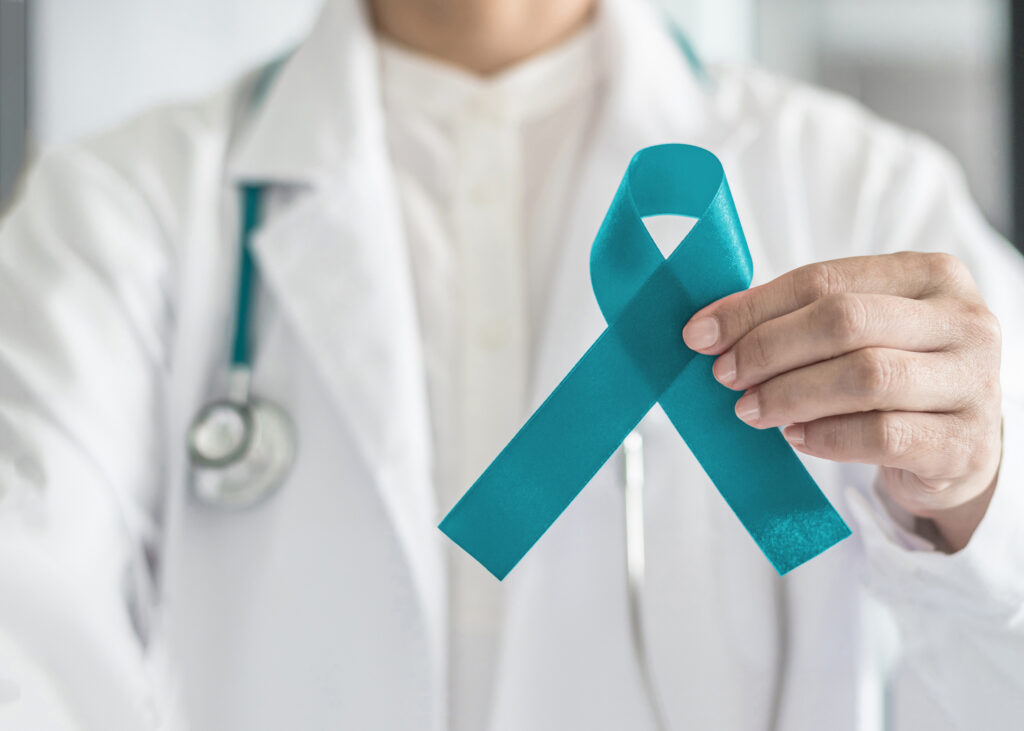By Lynne Hall
Cervical cancer can be prevented through an effective and long-lasting vaccine, screening, and follow-up treatment.
Yet Alabama has one of the highest cervical cancer mortality rates in the United States and consistently ranks in the top five states in cancer incidence.
To address this serious public health problem, the state of Alabama is leading the charge to wipe out cervical cancer
by 2033.
Operation Wipe Out, a partnership between the University of Alabama at Birmingham (UAB), the Alabama Department of Public Health (ADPH), Rotary Clubs and other partners, has earned national recognition for the program they conceived, with accolades from as high up as the White House.
“That was an honor,” says Operation Wipe Out’s Isabel Scarinci, Ph.D. “But it was just the beginning. Many states and even other countries have asked us for help. We’re already seeing great progress here. When people learn that a major cancer can be eliminated, they are eager to help.”

Cervical cancer is 90% curable
If you are female, you have a cervix — a lump of tissue at the back of the vaginal wall that serves as a conduit between the uterus and the vagina. The cervix faces a particularly sneaky threat — the Human Papilloma Virus (HPV). Male or female, there’s an 85% probability that you’ll become infected by a type of HPV at some point in your life. Most infections are asymptomatic and go away on their own. Some are persistent, however, and cause cervical changes that may result in cervical cancer.
There is good news. According to the Center for Disease Control (CDC), with early diagnosis and treatment, cervical cancer is 90% curable. Even better, there is an HPV vaccination that’s recommended for males and females between the ages of 9 and 26 that prevents infection, thereby eliminating the cause of cervical cancer and preventing other HPV-related cancers.
Warner Huh, M.D., chair of UAB’s Department of OB/GYN and a partner in Operation Wipe Out, played a pivotal role in development and testing of the HPV vaccine.
“Vaccination is vital. After FDA approval, there’s no question it’s both incredibly effective and extraordinarily safe. It’s going to change the lives of millions of women in the next 50 years,” Huh says.
HPV vaccines are available where you have other vaccinations, such as your pediatrician’s office. ADPH sponsors the Vaccine for Children program, which grants health care providers with free vaccines for eligible children — those on Medicaid, unable to pay, uninsured, under-insured and Native Americans. Contact your local health department for more information.
Spread the word among your friends and other parents about the importance of HPV vaccination and talk to your child’s school about sponsoring a vaccination event involving students. In Chambers County, where Operation Wipe Out got its start and where cervical cancer rates were highest, HPV vaccination was offered at schools and other special events. One high school increased vaccination rates to 60% and the other reached 80%.
Screening and treatment saves lives
Why are so many women dying of a cancer that’s 90% curable? Many reasons, with a lack of health care access in rural and impoverished urban areas being a main factor, says ADPH’s Nancy Wright. Today just 16 Alabama counties offer OB/GYN services, necessitating long drives to access care. Other factors include lack of education about the need for screening and treatment, no transportation and lack of insurance.
Cervical screening through Pap and/or HPV testing is recommended for women between the ages of 21 and 65, and thanks to improved technology, is now required just every three years. If a woman is asked to return for further tests, it does not mean cancer was found. It’s could be changes were found that require close monitoring.
If so, your health care provider may recommend a colposcopy, which takes a closer look at the cervix. If there are suspicious changes, small bits of cervical tissue might be removed to search for cancer cells. The procedure may cause some discomfort, but it’s short-lived.
If cancer is found, surgery is essential. The extent of the surgery and follow-up care depends upon the spread of cancer cells. But, just to reiterate: If caught soon, it’s 90% curable.
Your gynecologist provides Pap and HPV screenings, and many can now provide colposcopies. Additionally, some primary care physicians perform both procedures. If these services are not available in your area or you cannot afford care, contact the ADPH for information on accessing the Alabama Breast and Cervical Cancer Early Detection Program (ABCCEDP). If you qualify, free screening and colposcopies are available. If you don’t qualify, you can still receive information on how and where to access care.
For more information, contact ABCCEDP at 877-252-3324 or visit operationwipeout.org.




